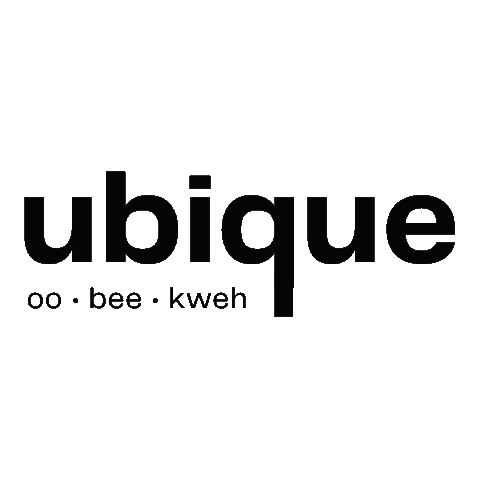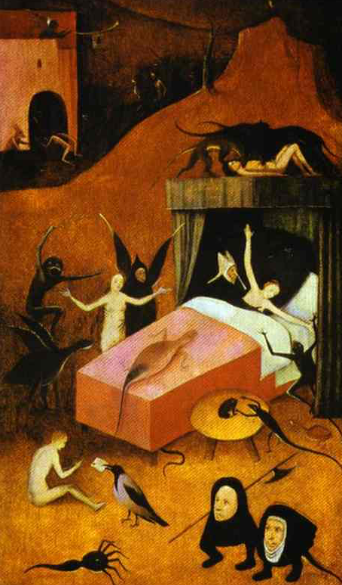Death of the Philosophy Club
By Judy Zhu
THE EARTH IS JUST A ROCK WITHOUT THE VOICES OF ART”
- editor’s note
Mortality has always been a matter that we skim over in our conversations, despite its universal inevitability. The notion of a physical being breaking down, like an engine designed to wear itself out to avoid burdening its offspring and posterity, is daunting in itself. Under non-theistic (and materialistic) thinking, it is even more jarring to digest the fact that the cessation of such an intricate machine of a mortal body our consciousness parasitised signifies the abrupt end of the being-for-itself too. Mortality cannot be discussed without an occasional ‘hush’ that pushes it further down the path of taboo, and even when the word ‘death’ itself is spoken, it is often accompanied by a blanket of awkwardness that shrouds itself over the rest of the conversation.
(Death of the Reprobate, Hieronymous Bosch, late 16th-century)
The Philosophy Club generously graced UniHigh when 2023 was nearing its end. With a capitalised ‘P’ and ‘C’, the club was ready to wash UniHigh over with novel philosophical discourses and (occasionally) political discussions. After many attempts to gain traction and half a year of rigorous promotion, the club has, staggeringly, gained a net of 5 long-term committed members (including the 2 club co-presidents and Mr. French, who is the supervisor)! Every Wednesday, members of Philosophy Club would gather together, keenly positing, discussing and refuting any and all philosophical arguments coming their way. Together, the 5 members formed into an unfathomably infallible galvanising force that is the foundation of this school.
And, of course, if you haven’t noticed, the paragraph above was all written under a sarcastic light. One of the co-presidents of the Philosophy Club, who is currently writing this article, has long given up promoting the club that is as good as dead. However, this state of the club’s ‘no-longer-alive-ness’ has left me with a question that I have no one to contempt with in Philosophy Club.
If the notion of ‘Philosophy Club’, like all things that do not and cannot materialise, exists only metaphysically, can it ‘die’ in the same sense as mortals do?
In an attempt to answer this question, I looked within philosophy, obviously. And I have conveniently broken down this wordy essay into 2 parts.
Does Philosophy Club Even Exist?
In short, no, and yes. Not in the way that mortals perceive and experience existence, that is to say. Long before the profound thinkers of the 20th century, French philosopher René Descartes once posited, what would become, his most renowned intuition in an attempt to understand conscious experience: “cogito ergo sum,” which roughly translates to I think, therefore I am. Descartes arrived at this intuitive statement after imagining that within the realm where he exists, everything that can be faked, is fake. This state of utmost scepticism has left him to be indubitable of one thing and one thing only – the only thing mortals will ever be sure of is their own existence in the present. If you were to be doubting your very existence and everything surrounding it, you must exist in order for you to form this doubt. Philosophy Club, however, does not cogitare (think), thus it cannot be sure it exists as a Sartrean transcendental I, who actively experiences, nor can it be passively experienced as a me. Philosophy Club’s existence cannot be confirmed from the senses (regardless of if they can be deceptive or not), whether it be olfactory, auditory, visual, proprioceptive, etc., as beings-in-themselves’ are. Sure, you can see evidences of Philosophy Club around the school presenting themselves through the forms of posters that says ‘PHILOSOPHY CLUB’ at the very top, you can also drop into room 608 during Wednesday lunchtimes and see its meagre members, but those phenomena cannot show you a material copy of Philosophy Club. Does this mean that Philosophy Club does not exist? Or that conceptional ideologies, metaphysical concepts and even your favourite fictional characters don’t exist, too?
No. Quite the opposite, actually. A parallel of the existence of Philosophy Club is the statement that gender does not exist, where it attempts to highlight the concept of gender as a mere social construct. You can examine all and every biological feature of an individual, but none of it could tell you the gender the individual identifies with, only the individual’s biological sex. However, we know very well that gender exists, for that everyone identifies with, at least, a part of it. Gender affirming surgeries exist as an aid for gender dysphoria, which stems from a transgender individual’s dissonant mental identity in relation to their physical features. If gender was truly nothing, where it has always been absent, individuals would feel no need to alter their appearance to ‘affirm’ their gender, a completely non-existent concept. Insofar as social constructs, albeit metaphysical, manifest in forms of physical constrictions, will always affect individuals who perform as if the construct physically constricts them. You may have seen De Beauvoir’s famous opening line of ‘one is not born, but becomes a woman’ and Butler’s theory of gender performativity. Similarly, the existence of clubs is another form of a social construct, though it does not crystallise through millennia of control affirmed through ‘performance’, but human instinctive need for socialising. In other words, the Philosophy Club exists, not as a phenomena, but a construct simply because we had materialised it into existence.
Then, Can Philosophy Club Die?
I don’t know. Maybe, if fictional characters can canonically die, or if eschatological ends are believed to be an accurate prediction of our world, we may be able to declare the death of a similarly non-material notion.
For a notion, such as Philosophy Club, to be considered dead, it is assumed that it has ever been ‘alive’ in some way. However, the Philosophy Club simply cannot die as it has never been alive. But here, I want to re-evaluate what dying means to humans. “What is death?” you ask, and I don’t have a definitive answer for that. One thing that I am sure of is that: without death or finitude, there would be no life. In Being and Time, Heidegger writes that death is the “possibility of the absolute impossibility of any existence at all.” Putting this in terms that are legible to normal people: death is a rudimental context for all beings-in-the-world, as its inherent finitude partially restricts us from sloppy indecisiveness. If we had all the time in a world where the end of our lives does not concern us one bit, our conception of time, life and even day-to-day habits would be radically different. What makes us different from a club struggling to find its members is the fact that: we are able to make decisions within restrictions and restrictions. Isn’t it liberating to think that regardless of if we have free will or not, because of life and death's intrinsic lack of freedom, we are rescued from endless and infinite decision-making? Ultimately, living with restrictions of choices is more fulfilling than merely being alive. What, even, is life if we are drowning in timelessness disguised as immortality?
Of course, UniHigh’s Philosophy Club is not dead (yet), as it still (barely) has 5 members. Now that I have convinced you that Philosophy Club exists, as well as it is undergoing an existential crisis, hopefully, I have also put you under an existential crisis. If you enjoyed reading this article, then feel free to come to Philosophy Club next week and discuss with us. If you didn’t, then I hope your disdain in my writing has propelled you to learn more about philosophy.



